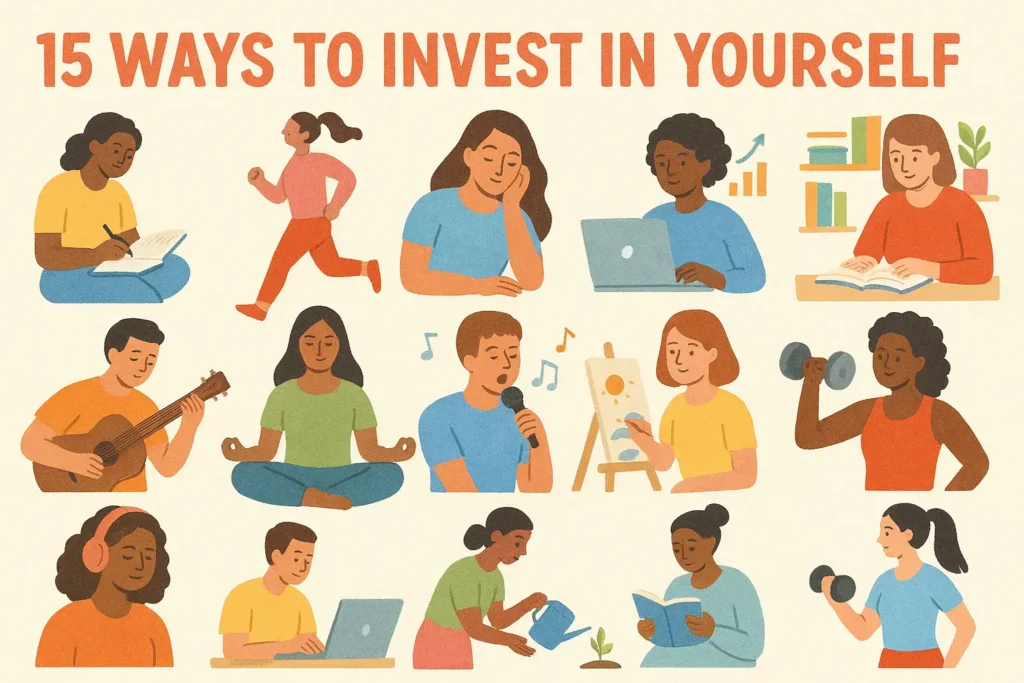Investing in yourself means doing things that improve your skills, health, and happiness. Whether you’re a student, a young professional, or an entrepreneur, small changes can pay big dividends. The ideas below (drawn from personal growth experts) show simple, everyday ways to level up your body and mind. Each tip comes with a quick note on “How it helps” so you know why it matters.
1. Exercise Regularly
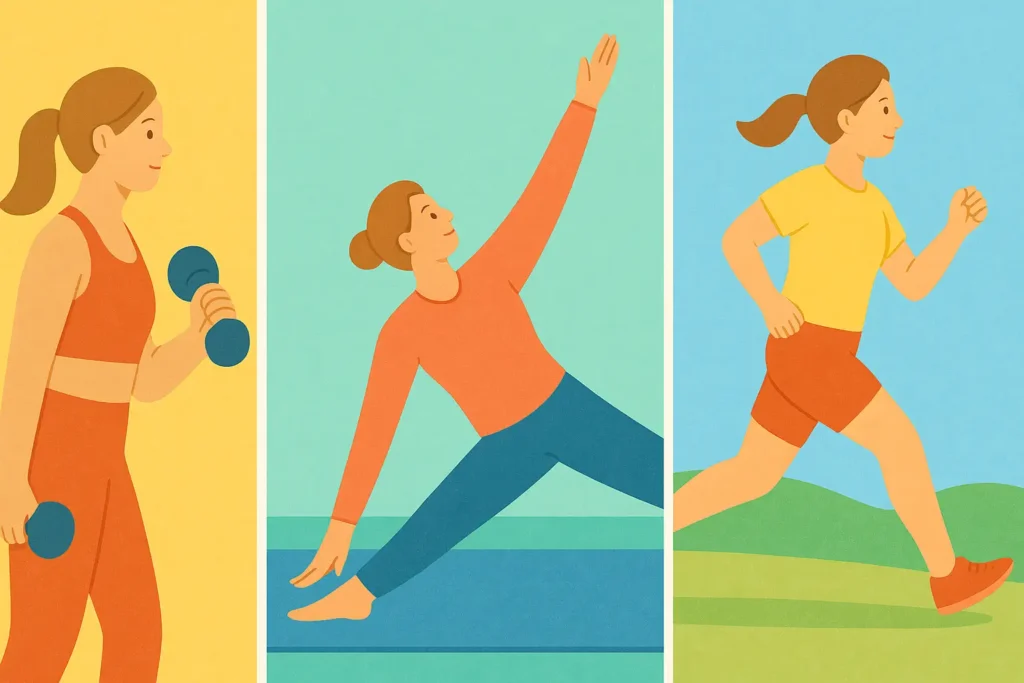
Regular exercise isn’t just about looking good – it sharpens your mind too. Working out a few times a week releases endorphins, boosts energy, and even grows brain cells. Research shows that people who exercise have better memory and thinking skills (health.harvard.edu). It also improves mood, sleep quality, and stress resilience. Think of exercise as a tune-up for your brain and body.
- How it helps: Moving your body strengthens neural connections and uplifts your mood. When you feel energized and stress-free, you focus better in classes, at work, or on personal projects.
2. Eat Healthy Foods

Eating a balanced diet fuels everything you do. Filling your plate with whole foods (vegetables, fruits, whole grains, lean protein) gives long-lasting energy and clear thinking. Studies found that people who eat more fruits and veggies are happier, more creative, and more productive ( nutritioned.org). Junk food causes energy crashes and brain fog, but nutrient-rich meals keep your brain sharp and body strong.
- How it helps: Good nutrition keeps blood sugar stable and brain cells fed, so you avoid afternoon slumps and mood swings. A healthy diet also boosts your overall well-being, meaning you’re more alert and positive every day.
3. Get Plenty of Sleep
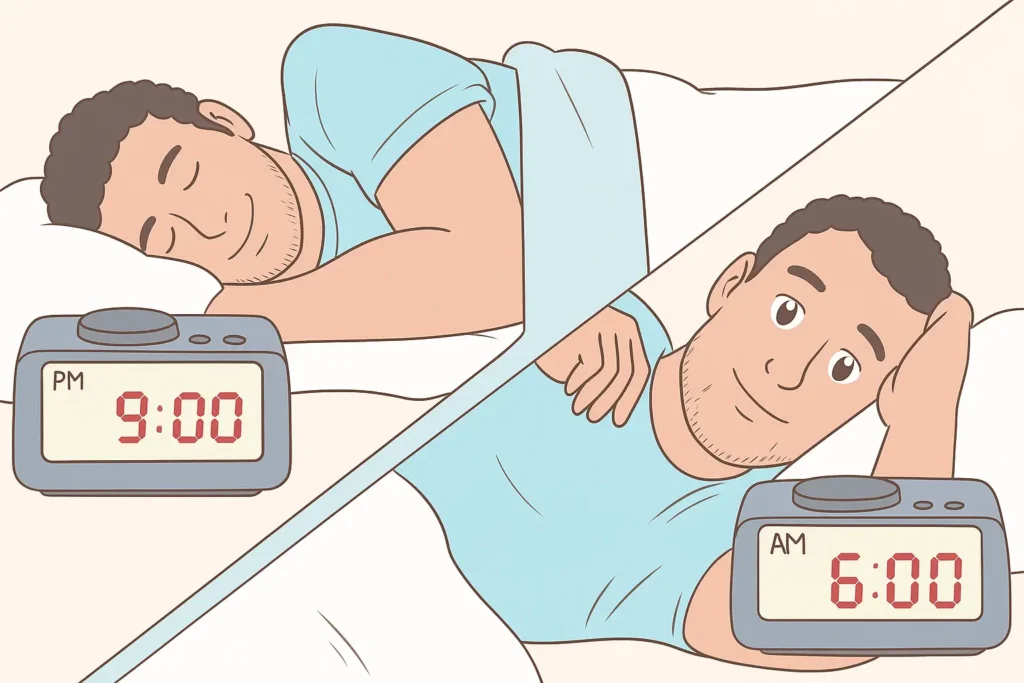
Sleep is like free maintenance for your brain. When you sleep well (7–9 hours), your mind files away what you learned and repairs itself. Experts note that high-quality sleep improves attention, concentration, and memory (sleepfoundation.org). It also sparks creativity and problem-solving. On the other hand, skimping on sleep hurts your focus, judgment, and emotional balance. Make a routine bedtime, and your goals (and brain) will thank you.
- How it helps: Solid rest gives you a sharper mind and better mood. You’ll learn faster and handle stress better, so studying or working is more effective and less exhausting.
4. Rediscover a Hobby
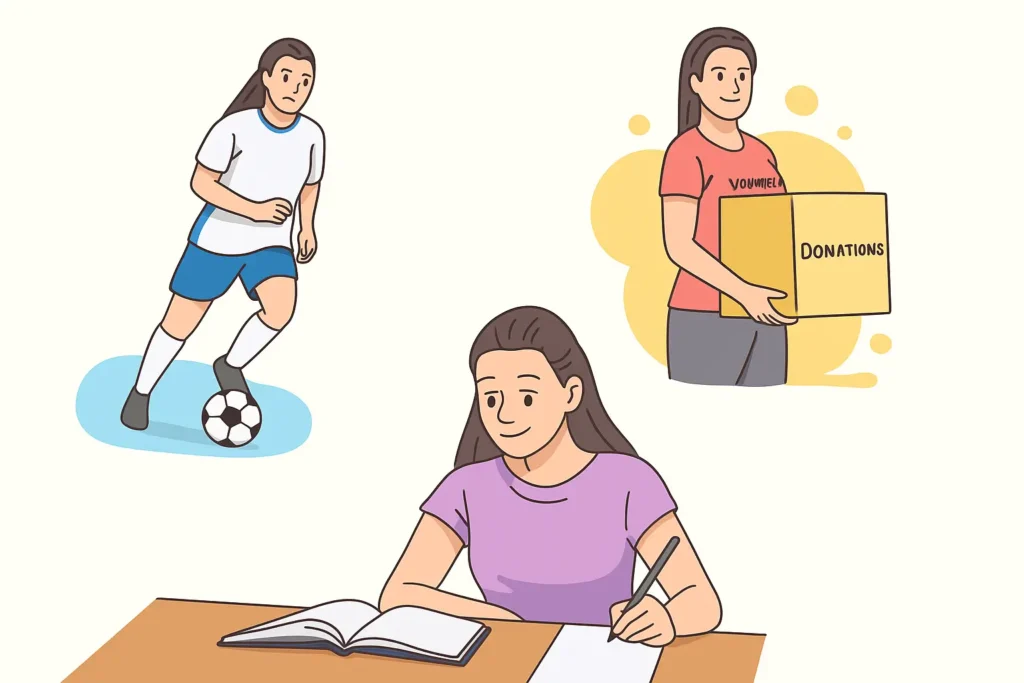
Hobbies aren’t just fun – they boost happiness and creativity. Whether it’s painting, playing guitar, gardening, or gaming, doing something you love recharges you. Studies (even of older adults) found that hobbyists reported better health, more happiness, and fewer symptoms of depression than non-hobbyists (health.harvard.edu). A hobby gives your brain a break from routine, encourages learning, and keeps you curious.
- How it helps: Having a fun project improves mental well-being and satisfaction. It provides relaxation and stimulates the mind, so you feel more balanced and fulfilled in life.
5. Keep Your Space Organized

A clean space makes for a clear mind. Clutter and mess create constant distractions, which drain your focus. Research shows that mess competes for your attention and lowers mental performance (blog.perfectionprofessionals.com). By organizing your desk, room, or schedule, you eliminate wasted time and stress. When everything has its place, you spend less time hunting for things and more time getting work done.
- How it helps: An orderly environment reduces stress and cognitive overload. You’ll feel calmer and more in control, which means you can concentrate on goals instead of piles of paper.
6. Dress Well, Feel Good

How you dress influences how you feel. Wearing clean, well-fitting clothes (even casually) sends a message to your brain that you respect yourself. Studies find that taking care of your appearance boosts self-esteem and can improve motivation (psychologytoday.com). It doesn’t mean expensive clothes – just wear things that make you comfortable and confident. When you look put together, you tend to walk and talk with more assurance.
- How it helps: A little effort in your appearance can raise confidence and mood. Feeling sharp on the outside helps you act sharp on the inside, so you tackle challenges with more confidence.
7. Build Positive Routines
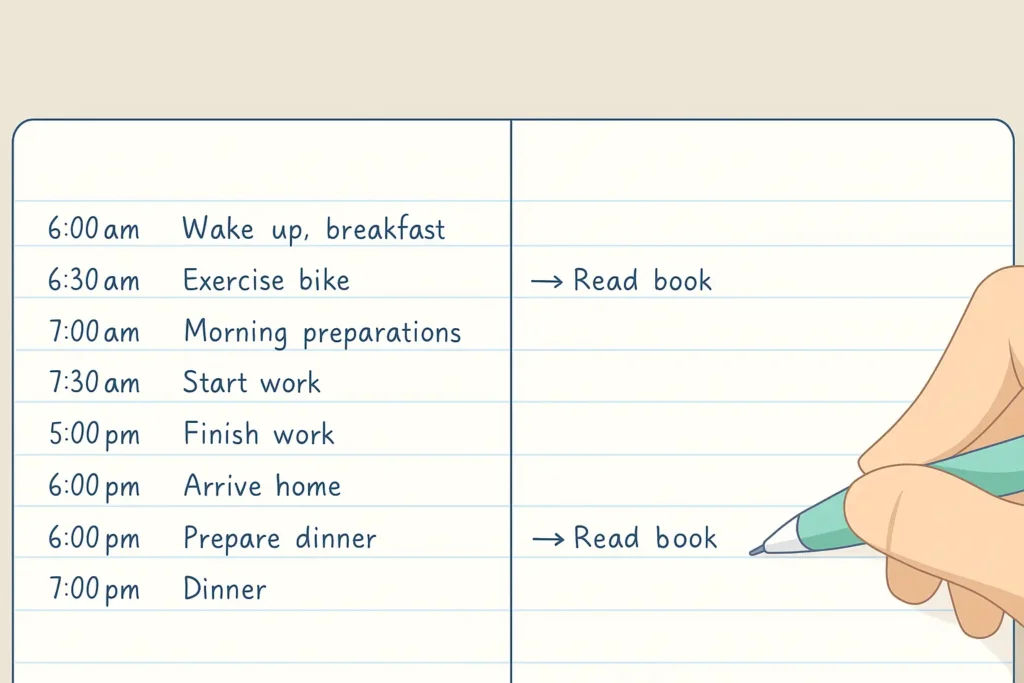
Habits and routines save mental energy. Doing regular activities (like a morning workout or nightly review of tasks) means you do them automatically without thinking hard. Good habits boost efficiency – your brain can focus on other challenges. Experts note that positive habits create consistency and stability in daily life (brownhealth.org). Over time, this structure improves discipline (no more missed workouts or all-nighters) and reduces chaos.
- How it helps: When routines are set, you worry less about “what’s next” and use willpower on big goals instead. Predictable habits cut stress and give you more time/energy for learning and growth.
8. Set Clear Goals
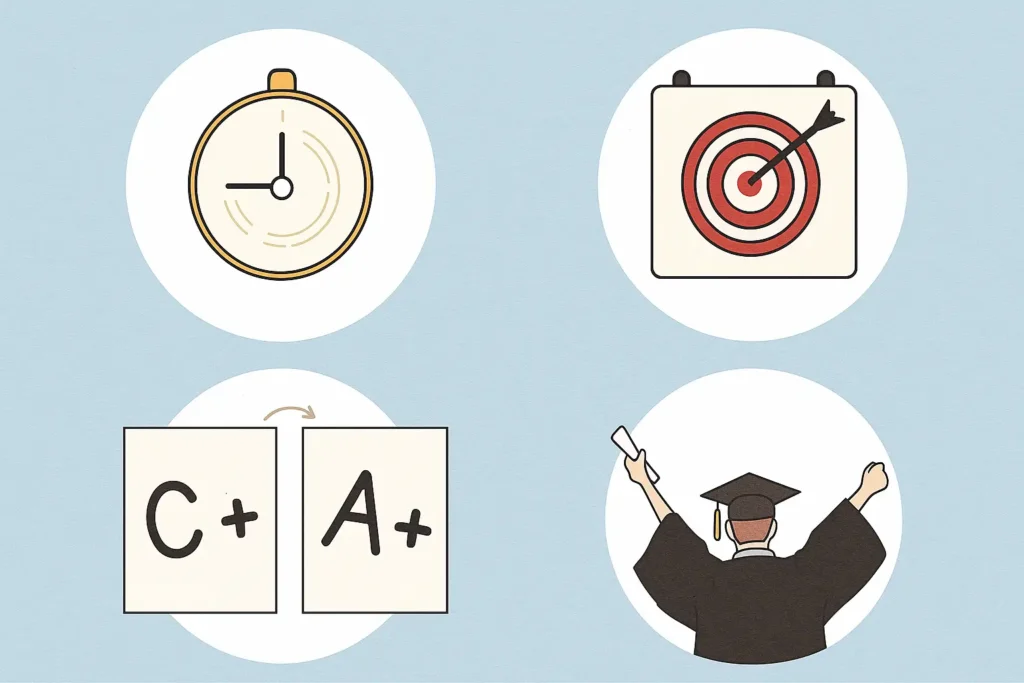
Goals are like a GPS for your personal growth. Without a target, you can drift – but having goals gives you direction and motivation. Experts emphasize that goals help clarify what matters and provide a roadmap to success (leadersknowitall.com). Write down academic, career, or personal goals (even fun ones) and break them into steps. Checking off each mini-goal keeps you moving forward.
- How it helps: Clear goals boost focus and motivation. They help you prioritize tasks and measure progress, which builds confidence and momentum as you see yourself advancing toward what you want.
9. Read Regularly

Reading is a powerful (and relaxing) way to grow. Books expose you to new ideas, cultures, and skills. Research shows that fiction readers develop more empathy and feel more socially connected (neurosciencenews.com). Reading can also reduce stress and strengthen the brain. For example, readers report feeling less lonely and more understanding of others. By reading non-fiction, you can learn anything from time management to entrepreneurship.
- How it helps: Reading exercises your mind: it increases knowledge, empathy, and mental agility. It also protects against cognitive decline. In short, it makes you smarter, kinder, and less stressed.
10. Start a Journal

Writing in a journal (even just a few minutes a day) helps you process thoughts and emotions. Pouring out your plans or worries on paper is like talking to a wise friend. Studies show that journaling reduces stress and improves self-awareness (prosper.liverpool.ac.uk). It can help you solve problems by clearing your mind. Keeping a gratitude or goal journal also boosts positivity.
- How it helps: Journaling improves emotional regulation and mindfulnes. By reflecting on your day or setting intentions in writing, you strengthen memory and gain insight into your growth.
11. Travel and Explore

Traveling (even locally) expands your horizons. New environments force you to adapt and learn. Experts note that dealing with unfamiliar situations on trips builds self-efficacy, meaning you trust your ability to handle challenges (thetravelpsychologist.co.uk). It also broadens perspective: seeing different cultures and people makes you more open-minded.
- How it helps: Travel makes you more confident and resilient. It teaches problem-solving (navigating new cities) and empathy (learning other ways of life), skills that apply in any career or personal situation.
12. Improve Financial Health

Good money habits are key to peace of mind. Learn to budget, save, and invest even a little. Financial stress is a top worry – over half of people say money is a major stressor, hurting their focus and performance (worklife.news). By building an emergency fund or learning about finance, you reduce anxiety. When your wallet isn’t constantly burning holes in your pocket, you can focus on learning and growth, not debt.
- How it helps: Financial stability frees mental space. For example, employees who got financial coaching felt 77% more confident about money and were much less likely to quit. When money worries shrink, you have more confidence and energy for your goals.
13. Build Your Network
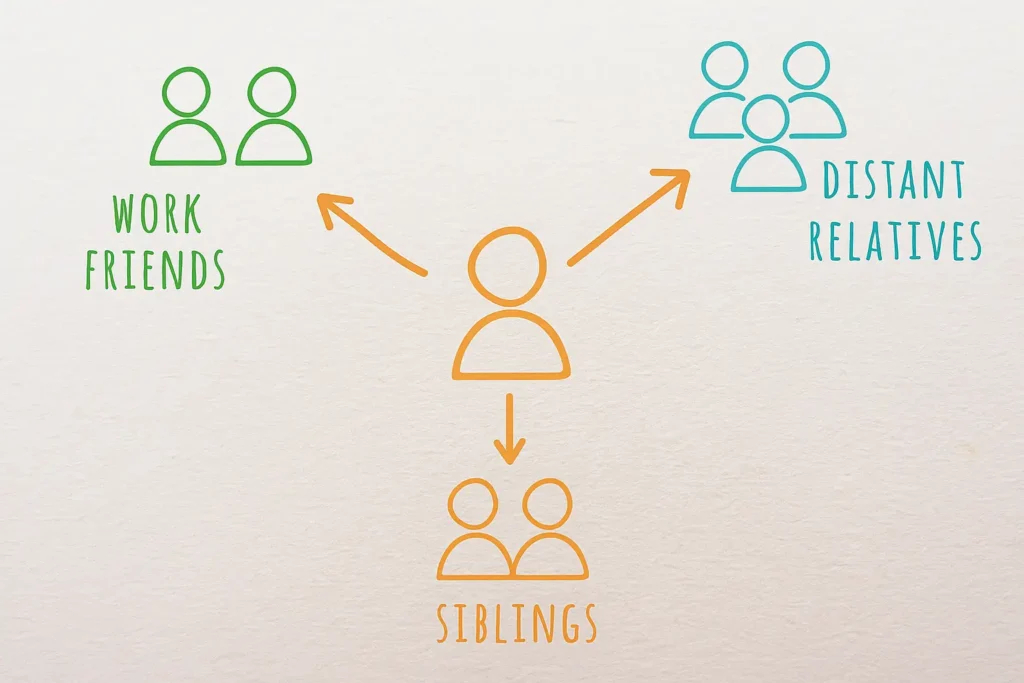
Who you know can help you grow. Networking isn’t just for business – it’s about meeting people who share interests or skills. Talking to classmates, colleagues, or mentors exposes you to fresh ideas and opportunities. When your network is strong, new projects, jobs or advice come easily. In fact, most job openings are filled through connections – an estimated 70–80% are never publicly posted (voices.berkeley.edu).
- How it helps: Networking opens doors. You gain access to resources (mentors, projects, or information) you couldn’t find alone. Sharing knowledge and helping others also boosts your reputation and confidence.
14. Find a Mentor or Coach

A mentor is someone who has been where you want to go. They share insights, keep you accountable, and introduce you to their network. Most successful people credit mentors: about 75% of top executives say a mentor helped their success (hbr.org). Mentored employees are also more satisfied; one survey found 90% of workers with a mentor report being happy at work.
- How it helps: A mentor guides your learning curve and encourages you. By tapping their experience, you avoid common mistakes and move faster toward your goals. In short, mentorship accelerates growth and confidence.
15. Practice Active Listening

Listening is a skill that can change relationships and opportunities. Instead of waiting to talk, really hear what others say. Active listening builds trust and understanding – people feel respected when you listen without interrupting. This is key in study groups, meetings, or social settings. As experts note, active listening improves understanding and empathy (verywellmind.com).
- How it helps: Good listeners learn more and make others feel valued. This leads to stronger friendships and collaborations. In work or school, listening carefully helps you solve problems faster and catch important details, which makes you more effective and respected.
Each of these 15 practices is an investment in your future self. By making small improvements every day, you build skills, confidence, and well-being. Over time, these habits compound: the healthier, more organized, and more knowledgeable you become, the more doors open. Pick a few of these ideas and give them a try – your future self will thank you for the foundation you lay today.

